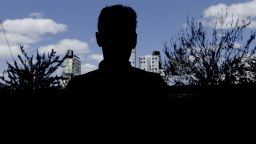Camille Gamarra and Diego Gallardo sat in their living room and watched as armed gunmen stormed a local television news studio, taking anchors and staff hostage during the live broadcast.
People watching it play out were left stunned, and word quickly spread on social media and through WhatsApp messages of simultaneous attacks that were being carried out through Ecuador’s largest and arguably most violent city, Guayaquil.
Suddenly, residents, including Camille and Diego, found themselves seeking a safe place for themselves and their loved ones.
The couple’s 10-year-old son was in school across town, and Camille bolted towards her car keys to pick him up. But Diego stopped her.
“He told me, ‘If something were to happen to you, our kids and I wouldn’t know how to cope. They need you. Stay here. I’m going,’” Camille recounts, a lost stare in her eyes as tears stream down her face.
She messaged with Diego as he made his way to the school, all the while getting alerts of more violence playing out across their city: gangs were attacking hospitals, universities and malls.
Diego’s last message to Camille said he was just two minutes from the school. But several minutes later, their son called Camille, scared and asking if anyone was coming to get him.
Camille repeatedly tried calling Diego’s cell to figure out where he was, and eventually a police colonel answered. Diego had been shot in an apparent random barrage of gunfire. By that point, police barricades were up and Guayaquil was on lockdown.
“I couldn’t rescue either of them,” Camille says, breaking down into tears. “I was powerless. I couldn’t do a thing.”
Days earlier, one of the country’s most notorious gang leaders – José Adolfo Macías, or “Fito” – had escaped from his prison cell in Guayaquil, prompting the government to declare a state of emergency. That declaration provoked criminal groups to unleash fury in the city on January 9 – marking a turning point in Ecuador’s fight against the gangs.
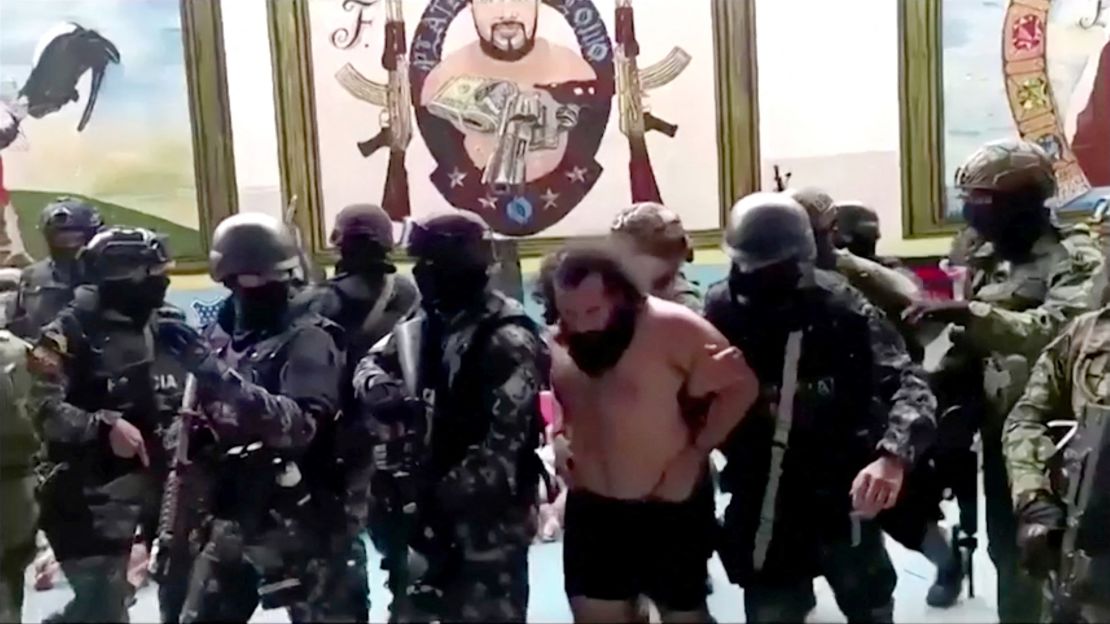
Hours after terror broke out in Guayaquil, President Daniel Noboa took an unprecedented step. Noboa, who had only been inaugurated two months earlier, declared an “internal armed conflict” in the country and ordered Ecuador’s armed forces to “neutralize” the members of more than 20 gangs, which he labeled as terror groups.
Since then, Ecuador’s national police and armed forces have been carrying out raids of homes of those with suspected ties to terror groups. They work to keep a low profile, wearing plain clothes and refusing to reveal locations of targets until they’ve executed the operation. They warn that leaks could cost lives.
Fear has permeated the ranks; even in Guayaquil’s 90-degree heat and humidity, under layers of tactical gear, they insist on putting on a ski mask before being filmed. Some asked CNN to also blur their faces.
“These have been long days and nights,” one officer said. “But we do this for our fellow citizens and our own families.”
‘Island of Peace’ no more
Ecuador, once known as the region’s “Island of Peace,” is nestled between two of the world’s largest cocaine producers, Peru and Colombia, and its deep ports have made it a key transit point for cocaine making its way to consumers in the United States and Europe. Its dollarized economy has also made it a strategic location for traffickers seeking to launder money.
Experts warn that Ecuador’s terror groups are aligned with a wider criminal network, including the notorious Sinaloa Cartel out of Mexico, complicating Noboa’s attempts to “neutralize” criminal groups operating within his borders. But Adm. Jaime Vela Erazo, head of the Joint Command of Ecuador’s Armed Forces, has vowed not to “back down or negotiate” with armed groups, adding the “future of our country is at stake.”
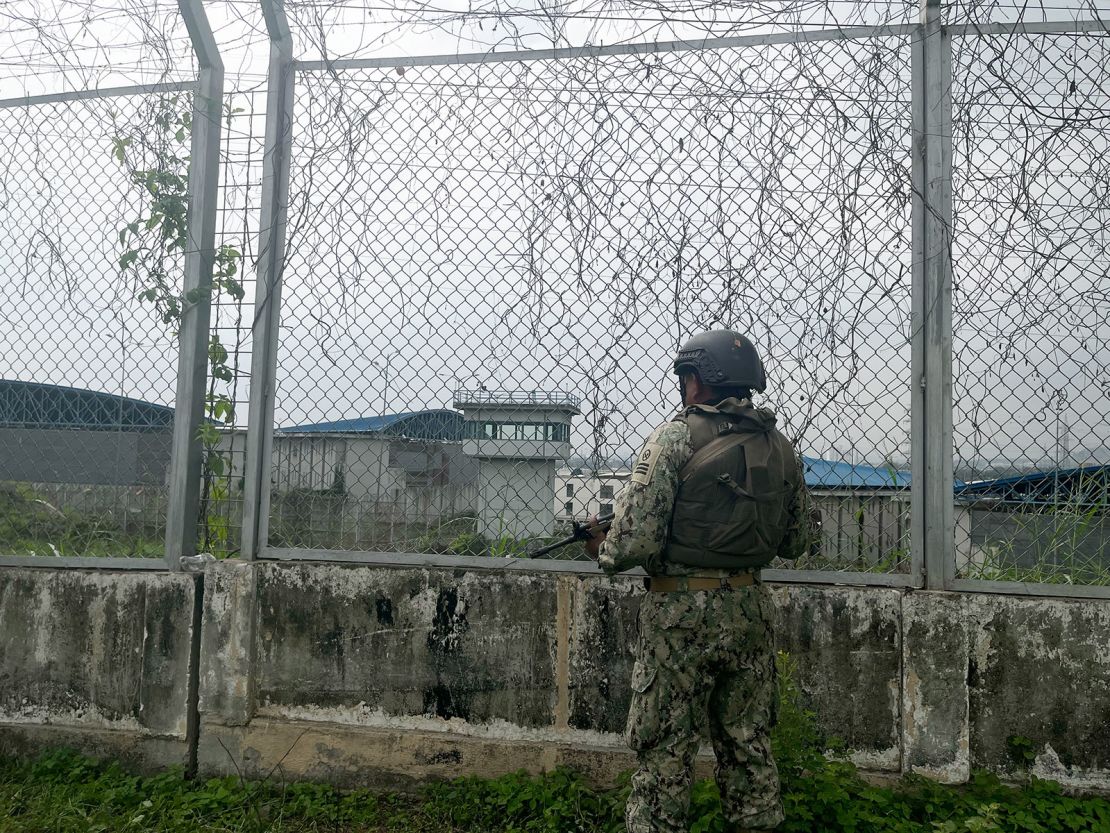
With a nationwide curfew in effect, during the day police and military set up roving checkpoints on the streets of Guayaquil. They stop drivers and pat them down to inspect them for weapons, meticulously searching every part of their car and even scrolling through their cell phones. Soldiers also stop commuter buses, asking passengers onboard if they have any information that might help law enforcement.
More than 3,000 people have been arrested since January 9, according to the Ecuadorian presidency. While those numbers may sound encouraging, fewer than two hundred of them were apprehended for what the government calls “terrorism,” according to government figures.
The battle is far from over. Ecuador’s government estimates that at least 30,000 people in the country are tied to gangs, according to Noboa.
But top military officials tell CNN that they worry about what happens next. They say they do not have the tactical equipment, ammo and intelligence needed to sustain this fight long term.
One soldier, who asked to not be identified, told CNN they are even lacking protective helmets and are using outdated firearms with a limit of about a dozen bullets a day.
On the front lines, while there is determination, there is also hesitation. Among the police and military tasked with conducting raids and preemptive strikes, some fear what will happen to them or their families if terrorists link them to the crackdown efforts.
“I know we’re now targets,” one soldier says. “But that won’t stop me from fighting.”
He and others have not been home in more than a week, working rotating shifts and patrols. He pulls out his phone to proudly show a letter sent by his 10-year-old daughter and written in English.
“‘I want you to know that everyone misses you at home and we want you to return safe and sound….And I ask you to help the country to be a better place,’” it reads.
“I’m at ease knowing I’m doing this for her,” he says.
President Noboa has asked the US and European nations for help. Speaking to CNN’s Christiane Amanpour, Noboa said the country “would gladly accept cooperation from the US. We need equipment, we need weapons, we need intelligence and I think that this is a global problem. It’s not only in Ecuador, this is a problem that goes beyond borders.”
Like other leaders in the region, Noboa has pointed out that the cartels running amok in his country fund their activities by selling drugs to foreign markets.
“We must be together in the fight against this because the consumption of these products is a regional and global problem. It is in the United States, it is in Europe, and we must work together to move forward,” he told Colombian radio station RCN last week.
The crisis could drive more Ecuadorians to emigrate. Locals are tired of living in fear and being extorted for protection money, says Carlos Jimenez, an urban planner who studied in the US and is now living in his native Ecuador. “These people are in the middle of gunfights in their neighborhoods, what would you do? You’re not going to want to stay there.”
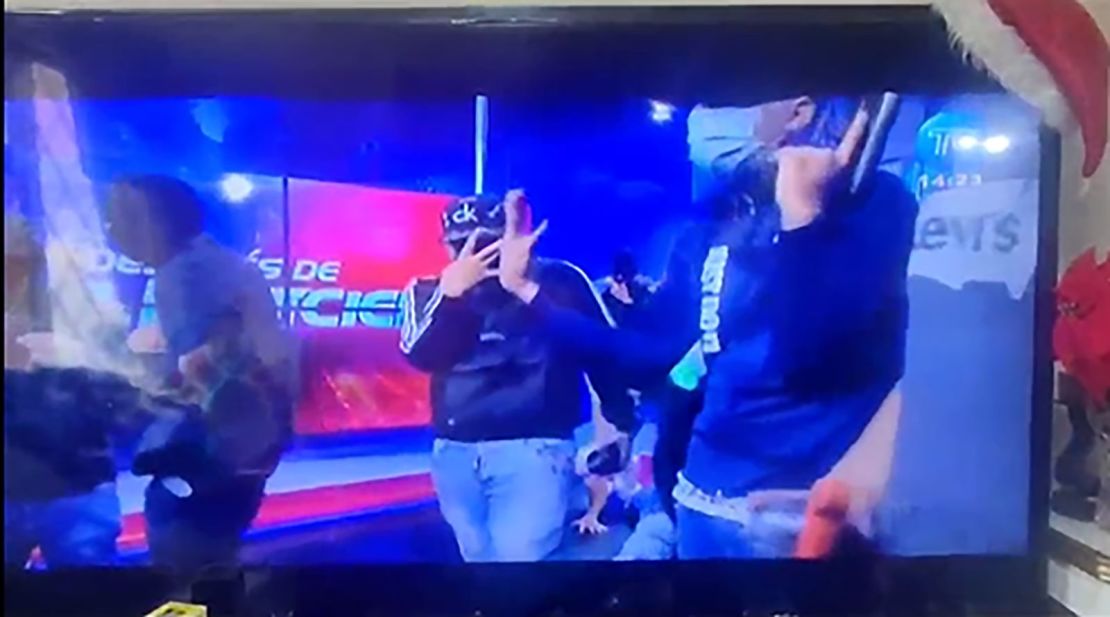
“I mean if (the US doesn’t) help us, probably you will see more people trying to cross the border,” Jimenez warns.
For now, Jimenez plans to stay, but he’s not sure for how long. “I’ve got a business down here; I’ve got family here,” he says. “I’m not seeing myself at 40-something moving somewhere else. I don’t want to move from my country, I love my country, man!”
Camille, who is still grappling with her husband’s death as she plans his funeral, says Diego too was proud to be from Ecuador. A musician, his stage name was Aire del Golfo, or The Gulf Breeze, an homage to his beloved coastal hometown.
Standing over the neighborhood memorial dedicated to Diego, she reads from a framed printout the lyrics from one of Diego’s songs: “I’m listening to voices that guide me to where I’m going and I don’t want to stop, because today I’ll find the place where I’m from. And I’ll stay there.”
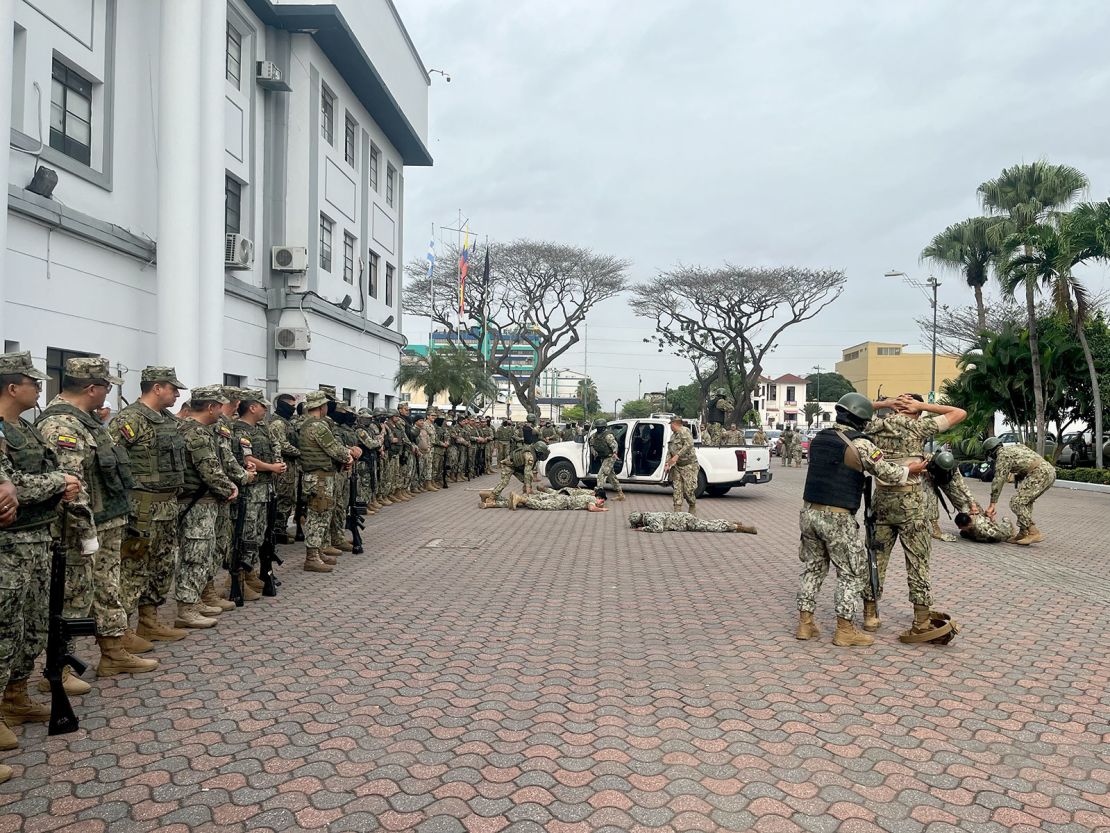
Signs of normalcy are slowly returning to Guayaquil. Days after Noboa’s decree of an “internal armed conflict,” CNN saw businesses reopening in the bustling city center. Residents began venturing out for meals and shopping. Some restaurants even daring to place tables on sidewalks for outdoor dining.
But the terror is far from over.
On January 17, Cesar Suarez, the prosecutor tasked with investigating the TC Television studio takeover, was gunned down in his car on the way to court – a brazen strike against the government’s anti-terror efforts, and a reminder of the gangs’ unrelenting grip on the country.


